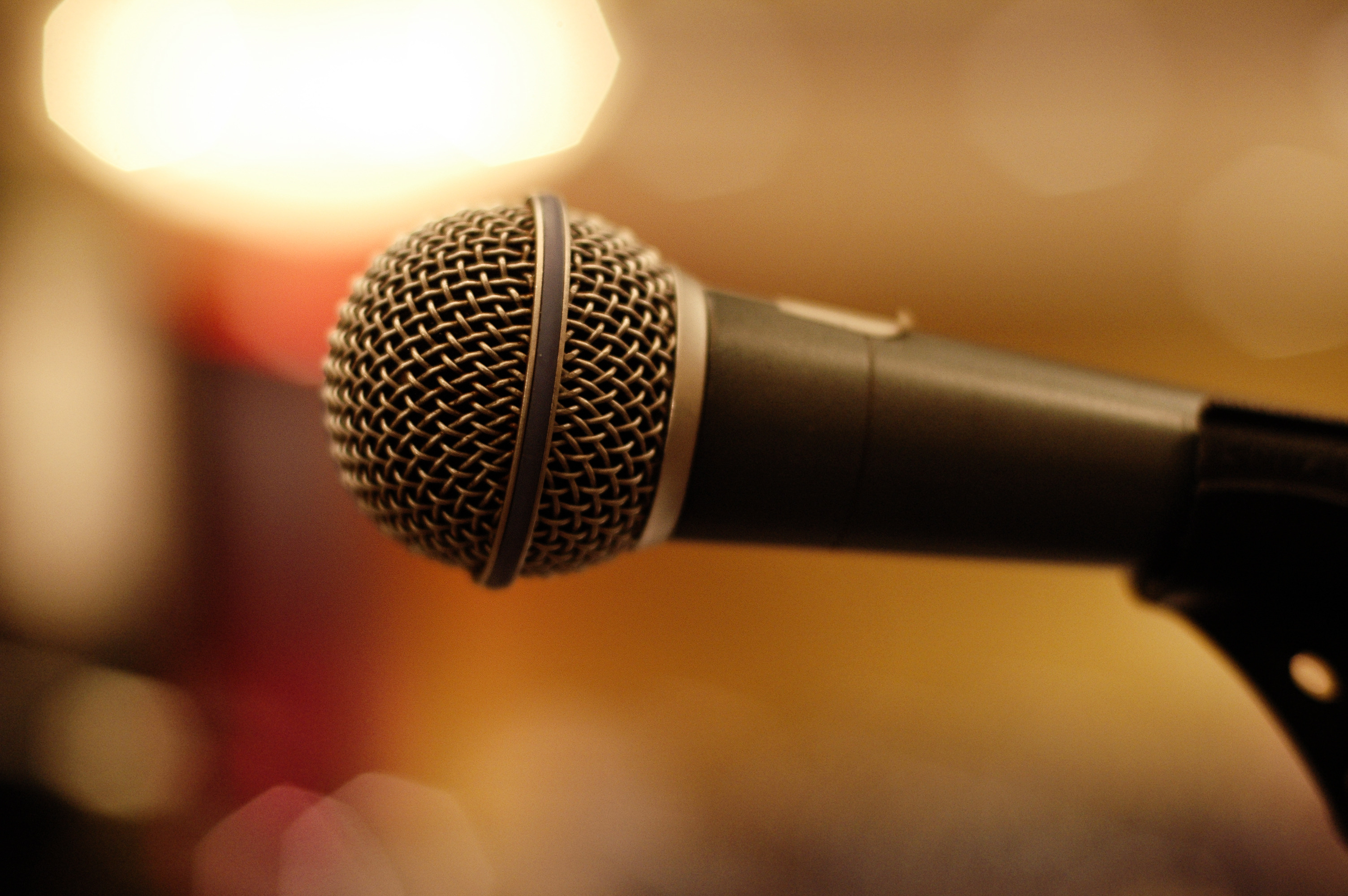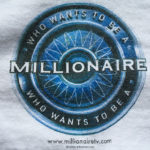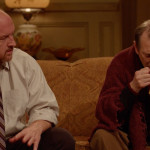I first stepped on stage to do stand-up comedy on July 13th, 2000 at The Comic Strip on the Upper East Side. I had never been more nervous in my entire life.
In order to do the show, I had to invite five friends and have them all pay a cover and a two drink minimum. I would later find out that this show is called a “bringer” and not even the bottom a rung of the stand up comedy ladder but, rather, an innocent scheme on the part of comedy clubs that led nowhere. I didn’t know that yet, though. I thought that this was a way to get seen.
I also thought that there might be agents in the audience. The amateur comedian and the general population at large have naive ideas about agents. We think of agents as secret spies lurking in the shadows in the back of a comedy club who are just looking to discover a comedian and usher him or her into the world of comedic superstardom.
Years after this first show, well meaning friends listening to me complain about how no one wanted to see my comedy would ask, “Hey, have you ever thought of getting an agent?”
Well aren’t you shrewd. No. That never occurred to me. Let me get right on that.
To this day, I have never even met an agent. Fortunate comedian friends I know have managers but I have no idea what the distinction is and doubt that I’ll ever find out.
They wanted to know, in essence, if it was my job. Because if it’s your job, you get paid. If it’s a hobby, well, anyone can do that, right?
But all of this was ahead of me. All I knew was that with my first five minute set I had to kill, lest the agents shun me, blacklist me, and scoff at the sound of my name.
Little did I know then, I could have got up and read Mein Kampf for five minutes and it wouldn’t have had any bearing on my “career” as a comedian. (I may have in fact become a legend. “Did you hear about the new Andy Kaufman? He goes to bringers and reads Mein Kampf!” Alas, instead I did my jokes about WWJD bumper stickers, beer helmets, and women’s anti-perspirant and was an adequate amateur comedian.)
That was the first step in the journey, though. I have done comedy, in one form or another, ever since. I have done stand up in comedy clubs, bars, theaters, and the back of a hamburger restaurant. I took the entire core curriculum of classes at two improv theaters. I have taken sketch and writing classes. I have done about a dozen sketch shows, hundreds of stand-up sets, and even more improv shows.
I’ve shared the stage with Dave Attell, Jim Gaffigan, and even Ron White once, I think. I did a few open mikes with Chelsea Perretti (Brooklyn Nine-nine) and Nick Kroll (Kroll Show, Parks and Rec). I did several with Aziz Ansari (you know who Aziz Ansari is) when he was eighteen and not particularly good. I was at the same open mikes as Ed Helms (The Hangover, The Office) and Eugene Mirman (Bob’s Burgers). I used to bark (hand out flyers) with Melissa Rauch (The Big Bang Theory). I was in a sketch group with Kevin Allison (The State, Risk!). I took improv classes with Zack Woods (Silicon Valley) and Bobby Moynihan (SNL). I’ve been coached by Lennon Parham, Jessica St. Clair (Playing House), and Jon Daly (Kroll Show, Drunk History), as well as Sean Conroy, Charlie Sanders, and Rebecca Drysdale (all writers for Key and Peele).
Despite being surrounded by people who have gone on to do great things, I haven’t made a career out of comedy. My career has been web development. But after having pursued comedy pretty consistently for fifteen years I’m starting to wonder why. If it’s not how I earn money and I’m not focused on some grand goal, why am I doing this?
Well, what the hell else am I going to do?
My relationship with comedy is one that a lot of comedians and comedy geeks will find familiar. It got to me early. The childhood shyness and frustration of the unremarkable can be channeled into many different things. I could have picked up a guitar or found an outlet in sports or maybe started reading poetry and listening to The Cure and dressing in black but somehow comedy and I found each other. There was a clearing in the wood and I took the geekiest path and, believe me, that has made all the difference.
I could always make my friends and classmates laugh. I found early on that humor is a good deflection technique for the perils of school: bullying and social anxiety. I asked for comedy albums for Christmas and birthdays and I listened to them constantly. In lieu of being outside with other kids, I parked myself in front of the television to watch Stand-up Stand-up or The Half Hour Comedy Hour or Comic Strip Live or the comedy competition on Star Search or the latest Rodney Dangerfield Young Comedians Special. Or I would pop Bill Cosby: Himself or Robin Williams: Live at the Met in the VCR. I watched whatever SNL I could get my hands on. Brian Regan and Randy Kagan and Jeff Stilson and Warren Hutcherson and John Caponera and Marc Maron and Jon Stewart and Brett Butler and The Higgins Boys and Gruber. I ate it all up.
It was escapist and obsessive but I genuinely loved it and I secretly harbored the desire to one day try stand-up.
I moved to New York in 1999, to 82nd street on the Upper East Side. This is just around the corner from the famous (according to them) Comic Strip Live. They had a television in the window showing who was on stage in the back room (you can only see the bar through the front windows). I would walk past without going in. One night I saw Dave Chappelle on the screen. I still didn’t go in. It would be several months before I would go in and ask how I could get on stage. And that’s how I found myself on stage for the first time at that bringer on July 13th.
Proud of myself for having gotten over that hump and actually gotten on stage, I was eager to tell anyone I had ever known that I was doing stand up! They would say, “that’s awesome!” and then, more often than not, they would ask, “do you get paid?”
The second most common question was “so what do you talk about?” But “do you get paid?” sticks out. It was both slightly offensive and completely logical. They wanted to know, in essence, if it was my job. Because if it’s your job, you get paid. If it’s a hobby, well, anyone can do that, right?
I think there’s an attitude, in America certainly, that comedy is a commodity. As Patton Oswalt said in his special 222 Live & Uncut (the uncut version of Feelin’ Kinda Patton), “people thought comedy was a thing that was done to you.” When I would bark people into Gladys’s Comedy Room in the back of Hamburger Harry’s in Times Square (showbiz!), many times someone said, “tell me a joke.”
I hated those people.
They wanted a sample of the goods, which buys into some idea that comedy is a product that you can give to someone, not a craft that needs practice and some level of engagement on the part of the audience. Perhaps I’m afforded a purist opinion like that because I don’t rely on comedy for my bread but still: a joke ain’t stand-up. Keep walking.
I’ve had friends say, “you should be on Saturday Night Live, you’re funnier than those guys,” which is a very nice compliment. It is also incorrect.
So, no, I don’t get paid. I have been but rarely. My product, which is my comedic stylings, is just not in demand. In fact, I pay money to do this. I buy drinks in bars where I do open mikes and booked shows. I paid for all of my classes. I pay for rehearsal spaces and directors and improv coaches. It’s veering away from being even an avocation and getting closer to being a habit that needs to be supported.
It can be frustrating and I get down on myself a lot. But I had a friend from my first sketch group – who is now pretty successful in production out in LA – who had a mentor who used to ask her, “do you like where you are? Because this might be all there is.” What sounded sort of bleak and defeatist to me in my twenties sounds like a good deal in my late thirties.
As I’ve gotten a little older, I’ve stopped looking at who I’m going to become and started dealing with what I have become. I don’t have any markers that would signify comedic success to the average person. But I’ve never heard of my friends’ law firms or hospitals either. It’s not that I’ve reached a Zen like state of detachment, I’ve just reached a point where there’s only so much that I can care about. Other people’s opinions of my success is slowly losing its foothold in my ego.
I think my lack of a career is a combination of a few things. Could it be a lack of talent? That’s totally possible. I’ve had friends say, “you should be on Saturday Night Live, you’re funnier than those guys,” which is a very nice compliment. It is also incorrect. The people you see on TV are very talented and ambitious. Sure, there are exceptions to that rule but, for the most part, anyone that I recognize on TV in some commercial or in some bit part is pretty amazing on a small stage in New York.
I think the biggest reason for my non-career is that I never truly went for it. To paraphrase David Mamet, “if you can fall back on something, you will.” I always had day jobs while I waited for someone to give me permission or grant me a career. If I wanted it, I should have been auditioning and submitting packets and busting my ass on videos or a web series. I might have failed and there are people doing that very thing right now who will fail. That’s just how it goes.
So here I am. I perform comedy. I don’t get paid and it’s not my job. But I don’t feel like an amateur, either. Is there a name for what I am? Student of comedy? Comedy volunteer? Comedic practitioner? People say that to truly benefit from meditation, you have to maintain your practice. You can’t just do it every now and then when you’re feeling stressed. Comedy feels like a practice. I do it several times a week and I have been for many years.
Perhaps it’s wishful thinking to compare this to meditation. I’ve spent so much time sitting in basements with a beer and twenty-five other self hating stand-ups scribbling notes before our five minute fix of stage time. I’ve spent hours playing improv games and arguing over whether or not the Flaming Torch or Wolverine would be funnier in a super hero sketch. This is how I’ve spent a great deal of my life and it’s either a waste or a miracle.
Is this all there is?
If so, I get to do comedy. How great is that?





Rob, this is a genuinely great little memoir from a veteran-amateur comedian. It’s honest, self-critical, and funny. When I was doing stand-up and improv in Chicago I had some of those same ideas and naivete. I haven’t done stand-up and improv in a long time, but I can relate to this a whole helluva lot.
Thanks, Wheels! I keep forgetting about your comedic past. We should compare notes sometime.
It’s a career, even if you don’t get paid. It’s just not a lucarative career, or a profession. Being a performer is more than a hobby because, even at the amateur level, it’s a commitment and a risk. I’ve built model airplanes and done stand up. Not the same. The payoff is the life experience. As a performer you get to do things and meet people that you never would have been able to otherwise. (We met in an improv class at the Magnet, if you don’t remember.) And as life experiences go, making a room full of people laugh – even a half-empty room of people – is a kind of magic.
Hey Fred, I totally remember you from our Magnet classes! Thanks for your comment and sorry it’s taken me so long to respond. You’re right, I’m trying to focus on the magic, regardless of the size of the stage or the room.